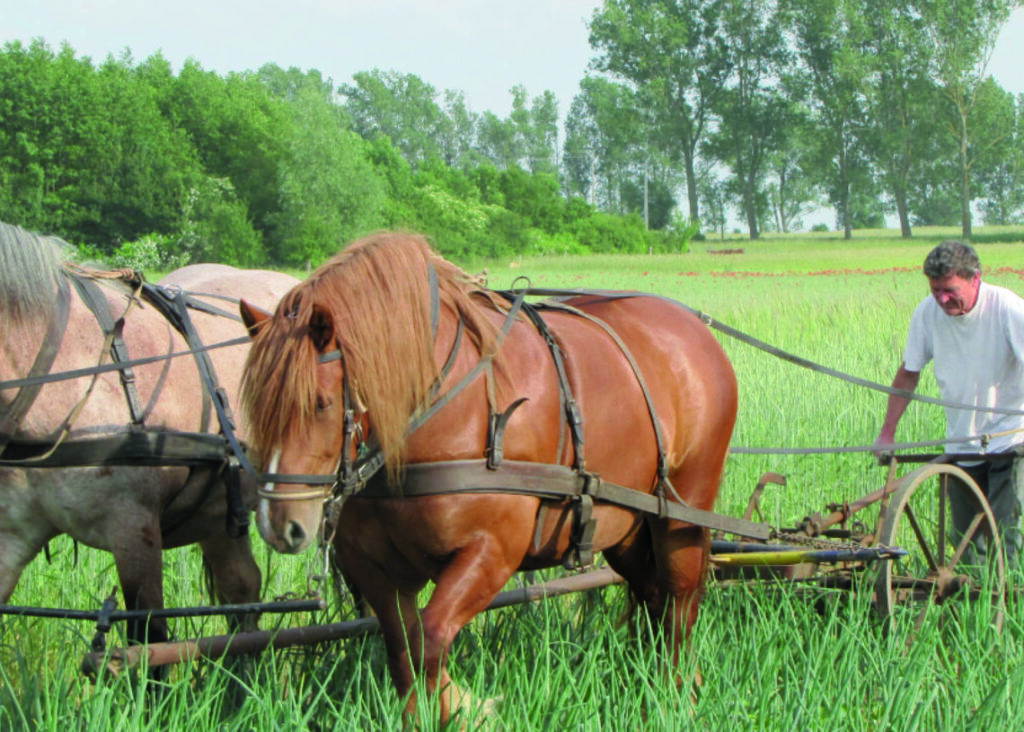The capitalist economy is fundamentally based on unlimited growth, constant profit-making, and the exploitation of nature, positioning humans as mere labor forces. This structure neglects both human and environmental interests. The cycle of continuous production and consumption not only exacerbates environmental degradation but also deepens social inequalities. In this context, anarchist cooperatives offer alternatives to the way of life and production relationships imposed by capitalism. Longo Mai stands out as an anarchist cooperative network that has developed a sustainable, collective, and libertarian model of life in opposition to the destructive effects of the capitalist economy.
Since the 1970s, Longo Mai has fostered a small-scale, needs-based production model in various regions of Europe, primarily in France, creating an independent model of living and production.
Alternative Production in Response to Capitalism’s Environmental Destruction
Because capitalism is rooted in growth and profit-making, it leads to the unlimited consumption of natural resources. Production processes are carried out without regard for their impact on the environment, resulting in consequences such as the climate crisis, the destruction of natural habitats, and the disruption of ecosystems. Longo Mai, on the other hand, aims to minimize environmental damage by developing alternative models of production and consumption that counteract the destructive effects of capitalism.
Ecological Farming Practices: In Longo Mai cooperatives, agricultural production is carried out using environmentally friendly and sustainable methods. Instead of traditional farming, permaculture and ecological farming techniques are adopted. These approaches favor a production style that preserves biodiversity, increases soil fertility, and sustainably manages water resources, as opposed to monoculture farming (the constant production of the same crop). The use of chemical fertilizers and pesticides is rejected, and natural fertilization and organic farming techniques are applied. Unlike capitalism’s profit-driven production methods, these approaches treat nature not as a mere resource but as a whole that must be protected and respected.
Small-Scale Production: In contrast to capitalism, production in Longo Mai cooperatives is kept small-scale. Local production is preferred over industrial agriculture, and production is geared toward meeting the community’s own needs. This not only enhances environmental sustainability but also prevents the waste and overproduction caused by the capitalist economy. Additionally, local production strengthens social bonds within the community and allows members to be more directly involved in the production processes.

Renewable Energy Use and Sustainable Energy Systems
The capitalist economy’s energy demands largely rely on fossil fuels and other environmentally harmful energy sources. The use of these sources is one of the primary causes of the climate crisis, leading to environmental disasters on a global scale. Longo Mai cooperatives, however, develop a model independent of fossil fuels to meet their energy needs and focus on renewable energy sources.
Solar and Wind Energy: The energy needs of Longo Mai settlements are primarily met through solar panels and wind turbines. Especially in the southern regions of France, where Longo Mai cooperatives are located, geographical conditions allow for the maximum use of solar energy. Wind energy is also actively used. These energy sources provide the necessary power for the settlements while presenting a model that does not harm nature.
Energy Conservation and Collective Consciousness: In Longo Mai cooperatives, energy consumption is also regulated in line with the community’s sustainability principles. Instead of the high energy consumption habits imposed by the capitalist system, minimal energy usage tailored to the community’s needs is encouraged. Energy use is shaped by collective consciousness and voluntary self-regulation rather than hierarchical control, allowing individuals to manage their energy consumption more responsibly.
Needs-Based Consumption and Opposition to Capitalist Consumer Culture
Capitalist consumer culture imposes constant consumption on individuals. Through advertisements and marketing strategies, artificial needs are created, and individuals are driven to produce and consume more within this cycle. The alternative model developed by Longo Mai, however, stands in direct opposition to this culture of consumption.
Collectivism in Consumption: In Longo Mai, consumption is shaped not by individual desires but by the common needs of the community. Unlike capitalism’s individual-based production and consumption chain, this ensures that resources are shared more equitably and efficiently. Collective consumption prevents excessive production and waste.
Recycling and Reuse: Longo Mai communities embrace recycling and reuse principles to minimize waste and reduce the use of natural resources. Items such as clothing, furniture, and tools are repaired and reused whenever possible, extending their life cycle before they are discarded. This serves as both an environmentally protective strategy and an act of defiance against the endless consumption cycle imposed by capitalism.
Putting Anarchist Ideals into Practice
Longo Mai not only offers a model based on sustainability and ecological production but also puts anarchist ideals into practice. In the capitalist system, the ownership of the means of production belongs to capital owners, and labor is exploited for their benefit. In Longo Mai cooperatives, the means of production are collectively owned, and every individual has full control over their labor.
Self-Management and Direct Democracy: Decision-making processes in Longo Mai are managed through direct democracy, providing an alternative to the hierarchical structure of capitalist production. Individuals make decisions in a horizontal structure within the community and have full control over their own lives. Every person has an equal say in important decisions for the community, and no one individual holds power over another. This model encourages a system based on active participation and collective responsibility, countering capitalism’s tendency to passively pacify individuals and direct them solely toward consumption.
Longo Mai offers resistance and an alternative way of life against capitalism’s mechanisms of exploitation of both nature and humanity. With its small-scale, ecological production methods and reliance on renewable energy sources, it minimizes environmental destruction while advocating for needs-based consumption, presenting a radical stance against capitalist consumer culture. This model, based on self-management and direct democracy, makes possible a libertarian and collective way of life, in opposition to capitalist hierarchies and exploitation. Longo Mai’s fight against capitalism can be seen not only as an economic model change but also as a movement advocating for social and environmental justice.
